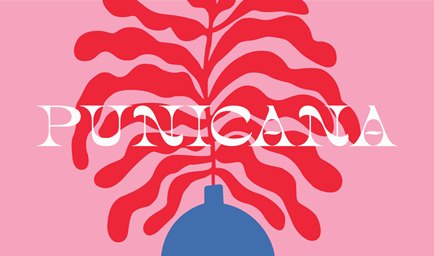About Punicana
Punicana is a fashion brand founded by Evren Doğançay.
The name Punicana comes from the word Punica, which is the scientific name for pomegranate. In Turkish culture, the pomegranate is a symbol for good fortune, abundance and fertility. It is said that only a hundred years ago pomegranates were used as a metaphor for marriage proposals. The story goes that when a man wanted to propose to a woman, he would send her a basket of pomegranates as a gift. If she accepted the fruit, that meant “yes”.
Evren Doğançay is a fashion buyer with over ten years of experience working with retailers all around the globe. Her long standing retail career taught her exactly what, when and how women like to dress in their everyday lives.
Evren is currently using two different handmade fabrics in her fashion line Punicana. These fabrics are called Ikat and Kutnu.
She has been in love with Ikat since her teens. Even though Ikat is made in Uzbekistan it is easily accessible at the historic Grand Bazaar in Istanbul. Creation of this fabric is a very difficult and slow process. First silk and cotton are tied into bundles. The patterns are then hand drawn with coal on to these bundles by a craftsman. Then they are tied again for dying the patterns. This is repeated for each color. This process alone takes one month. At the end the dyed yarns are handwoven into silk/cotton or cotton cloths. The touch and feel of the fabric, the colors and the patterns make it incredibly rich and luxurious. Historically in Central Asia, wearing a garment made of Ikat—with patterns that have been used for centuries—was considered a status symbol.
Evren discovered Kutnu at the Grand Bazaar while on an Ikat hunt and fell immediately in love with the fabrics’s rich colors. To her surprise she learned that it is woven in Gaziantep, a city in southeast Turkey where her father was born. Kutnu is made by a few expert craftsmen exactly in the same way as in the sixteenth century. It is also known as the “palace fabric” due to its use in caftans of Ottoman sultans.
Due to their difficult and slow production process as well as their narrow widths as compared to factory produced fabrics, Ikat and Kutnu are not cost efficient enough for big commercial brands. Therefore, both fabrics are sadly not seen in our daily lives.
“They are so beautiful and so luxurious, yet I very rarely see Ikat and Kutnu used in fashion collections. These fabrics are truly works of art and so kind to nature that I think women should be able to wear them every day and for every occasion from beach times to cocktail hours. So I created Punicana…”
Both fabrics are sustainable and eco-friendly.


 No products in the cart.
No products in the cart. 